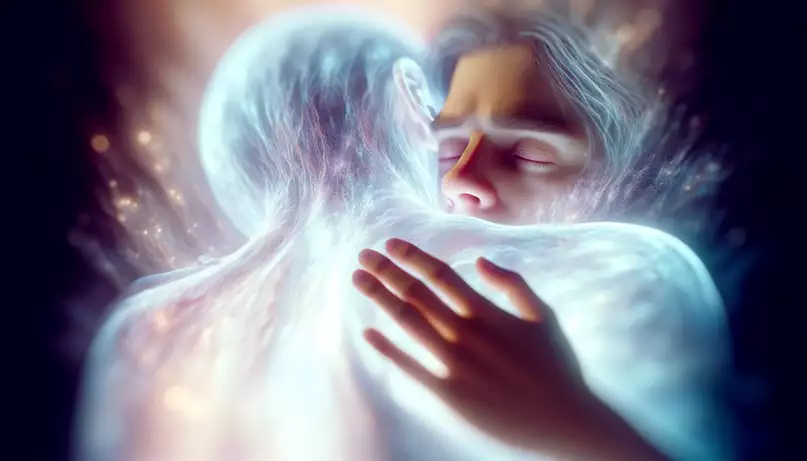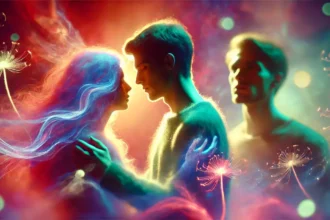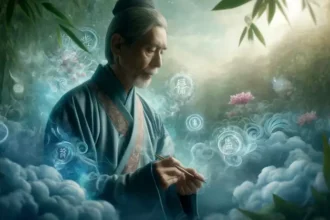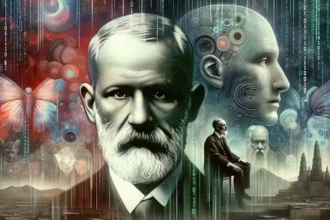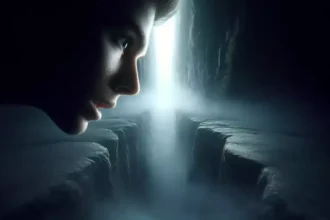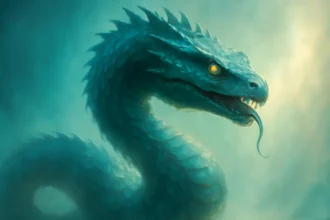Dreams involving deceased loved ones are deeply emotional and significant, often occurring during times of stress, grief, or on anniversaries of significant dates. These dreams can serve various purposes: they might offer comfort, provoke anxiety, or enable unfinished conversations to take place. Commonly, they symbolize the ongoing impact the deceased have on the living, representing unresolved emotions or continued bonds. These dreams can also reflect the dreamer’s struggle with acceptance and moving forward. Understanding these dreams can provide insights into our deepest feelings about loss and the healing process.
Dreams Examples
- Conversation: You dream of sitting on a familiar porch, talking calmly with your deceased grandfather about recent life events as if he never left.
- Guidance: In your dream, your late mother appears at a crucial moment, guiding you through a difficult decision, her presence reassuring and protective.
- Missing Them: You desperately search for your deceased friend in a large crowd in your dream, feeling anxious as they remain just out of reach.
- Celebration: You attend a joyful family reunion in your dream, where your late sister is laughing and mingling, making the event feel complete.
Dream Meaning: Good or Bad?
Dreams of deceased loved ones often carry a dual meaning, reflecting both comfort in reminiscence and pain in loss. They can be therapeutic or troubling, depending on the emotional context and the dreamer’s current life situation.
Positive Interpretation
When these dreams bring feelings of peace or closure, they can be profoundly healing. They may allow one to process grief and ‘speak’ to the deceased one last time, providing a sense of closure and ongoing connection. Such dreams often highlight the love and bond that continue beyond physical existence, suggesting that the dreamer has found a way to internalize the loved one’s impact and presence.
Negative Interpretation
Conversely, if the dream induces anxiety or sadness, it might reflect unresolved grief or guilt. These dreams can sometimes act as a reminder of the loss, exacerbating the pain, especially if the dreamer has regrets about things unsaid or undone. Addressing these emotions in waking life can be crucial for healing.
Different Cultures, Different Meanings
- Christianity: These dreams are often seen as messages from the deceased, providing comfort or guidance.
- Islam: Dreams of the deceased are significant, often viewed as spiritual visits that carry messages or warnings.
- Hinduism: Such dreams might be considered a part of the soul’s journey, reflecting unresolved karma or continued affection.
- Native American beliefs: Many tribes view dreams as visits from the spirit world, where communication with deceased ancestors is possible and meaningful.
- Chinese culture: Dreams of ancestors are respected and often seen as significant signs that must be interpreted and acted upon.
- Ancient Egyptian beliefs: The dead were thought to communicate through dreams, offering guidance and warnings to the living.
- Judaism: These dreams can be seen as important messages that need interpretation, sometimes requiring actions such as charity in the deceased’s memory.
Psychological Perspectives
From a psychological standpoint, seeing deceased loved ones in dreams is a manifestation of grief and the brain’s way of processing loss. These dreams can provide comfort, or they can reopen wounds depending on the dreamer’s emotional state. Freud might interpret these as expressions of unresolved conflict or guilt, while Jungian psychology might see them as dialogues with parts of the self that the deceased represented.
What You Should Do
If your dreams of deceased loved ones bring comfort, embrace them as a natural part of your healing process. If they cause distress, consider exploring your feelings more deeply, perhaps with a therapist. These dreams can help you understand your grief and find meaningful ways to continue honoring the memory of those you have lost.
« Back to Dreams Dictionary

